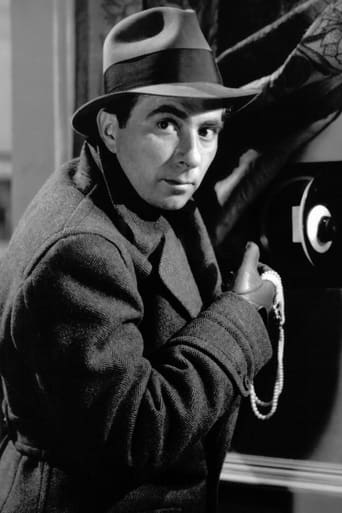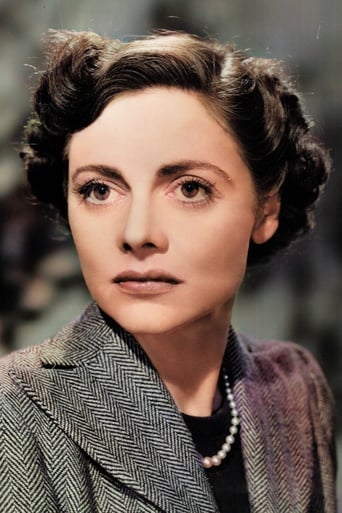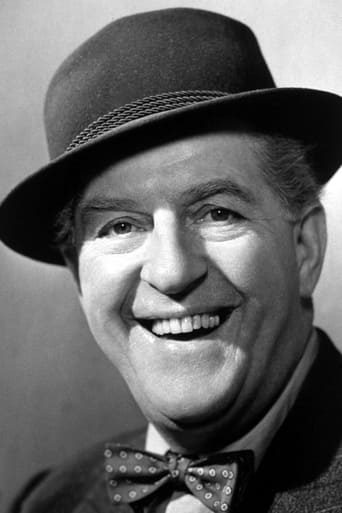Exoticalot
People are voting emotionally.
Phonearl
Good start, but then it gets ruined
Gurlyndrobb
While it doesn't offer any answers, it both thrills and makes you think.
Marva-nova
Amazing worth wacthing. So good. Biased but well made with many good points.
lucyrfisher
As others have said, the story follows the Gibbons family in Clapham from 1919 to 1939. The central characters (the parents) are played stunningly by Robert Newton and Celia Johnson. Mr Gibbons is a bit like Polonius - always coming out with rather cliché'd advice. But his children hear his warmth and concern and support - which is what really matters. Mrs Gibbons is more acerbic and constantly trying to stop the others rowing.The old mother and widowed aunt are brilliant. Coward gets in some superb satire of both hypochondria and Christian Science (the aunt switches tack halfway through the story).I enjoyed the technicolour, because the clothes are PERFECT. For anyone interested in fashion history, this film has everything. The old mother, like Queen Mary, never updates her look from before WWI, favouring long skirts and "toques" (see Queen Mary's hats). The aunt is always slightly behind the times. Only Kay Walsh is slightly out of period - her Charleston dress has a waist! Tsk, tsk. And she can't quite bring herself to adopt the dated hairstyles that must have seemed frumpy to her. She's brilliant in her part, though, complaining that her family are "common".The left-wing views of the son, Reg, and his friend are sent up, but at the time it was the communists who fought the fascists, and the boys get beaten up in a clash with Mosleyites.Just one point - other reviewers from the States have called the family "middle class". This may be confusing for Brit readers - their classification is different! They are lower-middle-class: hard-working and aspirant. I've forgotten what Mr Gibbon's job is, but somehow it supports a house, three children, two relatives, a cat, and a maid. However, maids were cheap back then, and one woman couldn't have done the work of a house that size.We're told, however, that she gets help from her daughters (though not the parasitic relatives). The maid is a bit caricatured - maids were stock comic characters in 30s plays - but she is treated as one of the family and Mr G even helps her fold the tablecloth.The family don't exactly speak Cockney, just a bit "common". By the way, Noel Coward was not "patrician". Didn't he grow up in a family and house like this? He invented his aristocratic persona and accent. I don't think anybody really talked like thet!
Framescourer
A deeply affecting film that quickly outstrips its own agitprop frame to become a robust but romantic drama. David Lean (and Noel Coward) create a sort of middle-aged rite-of-passage domestic epic, in which the world's woes and loves are played out in a Clapham terrace. The large, impressive ensemble is led by the mother in a parental couple moving their family into a home following 1919 demobilisation. Celia Johnson is familiar to many for her subsequent film for Lean, Brief Encounter, yet this is a thoroughly intelligent, coruscating, indeed modern screen performance that dominates foils as fine as Robert Newton's Frank (the husband) or John Mills' carefully graded Billy.Like all effective romances constructed over a time period, we become familiar with the space as well as the people. The characters are well- drawn and maintained but so is the design of the inside of the house. Key to this is the use of the back door and the garden. This is informal gate to discreet domestic life in England between the wars: a refuge from the formal entrance at the street, the garden where men are reunited and family nurtured in fact or in the symbolism of the compulsive watering of plants. It's also where the one tragedy of the film is learnt in a fine single-take tracking shot, rooted in the kitchen but looking out into the garden for the parents to come in and show the way forward. 8/10
MrOllie
I throughly enjoyed this little gem of a film. It is very well acted and it was nice to see a smart well groomed Robert Newton being a million miles away from Long John Silver. It had some laughs,some drama and quite a bit of sadness and as you get to know the different characters you feel a genuine fondness for them. I was brought up in the 1950's and recall visiting relatives who had grandmas and spinster aunts living with them, just like in this film. Though there is bickering and some harsh words used by the family, it does represent a time when families stuck together and deep down loved and respected one another. If you get the chance to see this movie, then I am sure that you will enjoy it.
edwagreen
An outstanding David Lean film examining England between the World Wars. It deals with the Gibbons family and their lives during this tumultuous time.Robert Newton and Celia Johnson are absolutely fabulous as the couple with 3 children. A stellar supporting cast enables this picture to be even better. We experience happiness, tragedy, the Charleston, general strikes hitting an endearing British people.We see a family in crisis. The mother is quite a character, and even with her morbid ways, we can chuckle as this is what occurs as our seniors get older. A strong family structure committed to family values is terribly hurt by the actions of the youngest daughter, but in life there is redemption, and that is admirably shown in this film.Life goes on. The question of what happens when we leave our homes and new occupants come in, is there some sort of link between the old and new? This is a fascinating question and this period piece, shot in bright textures, well answers this. Yes, we keep up that stiff upper lip.





